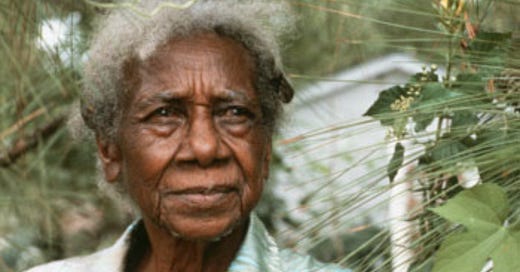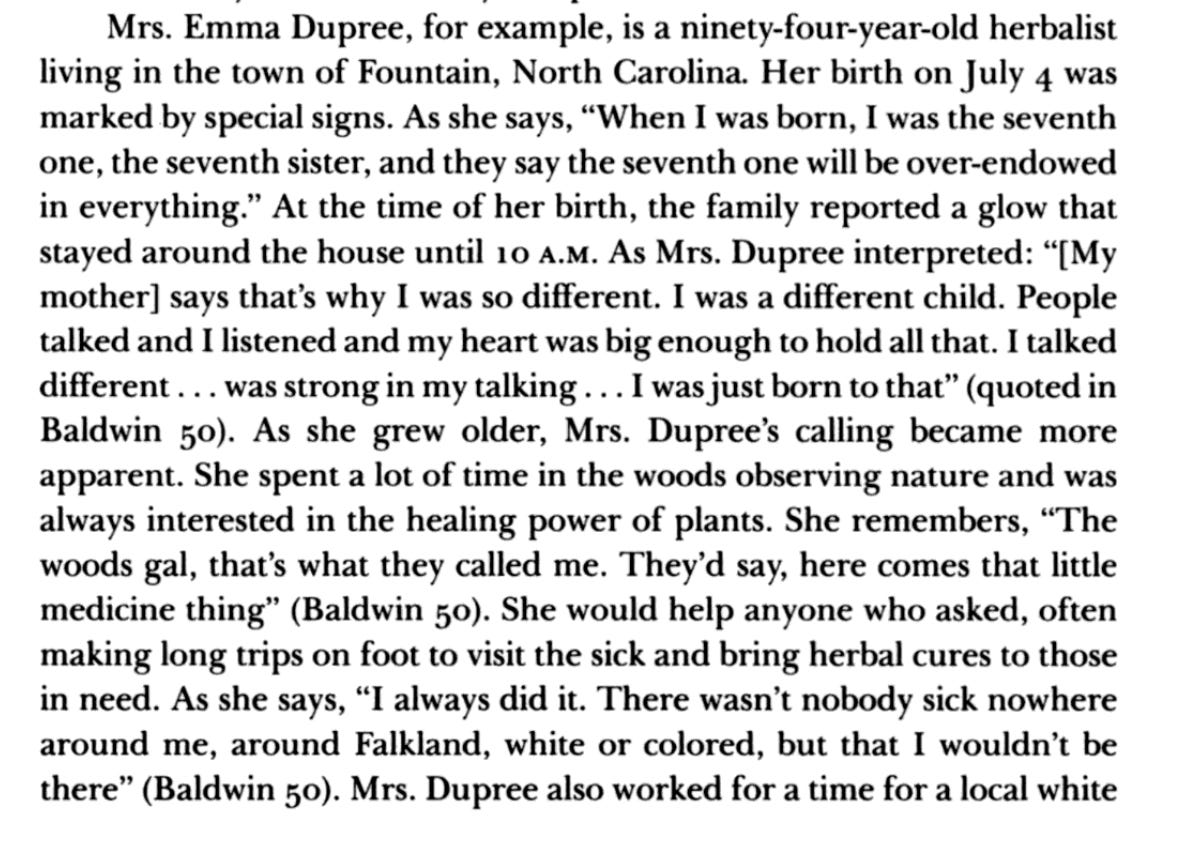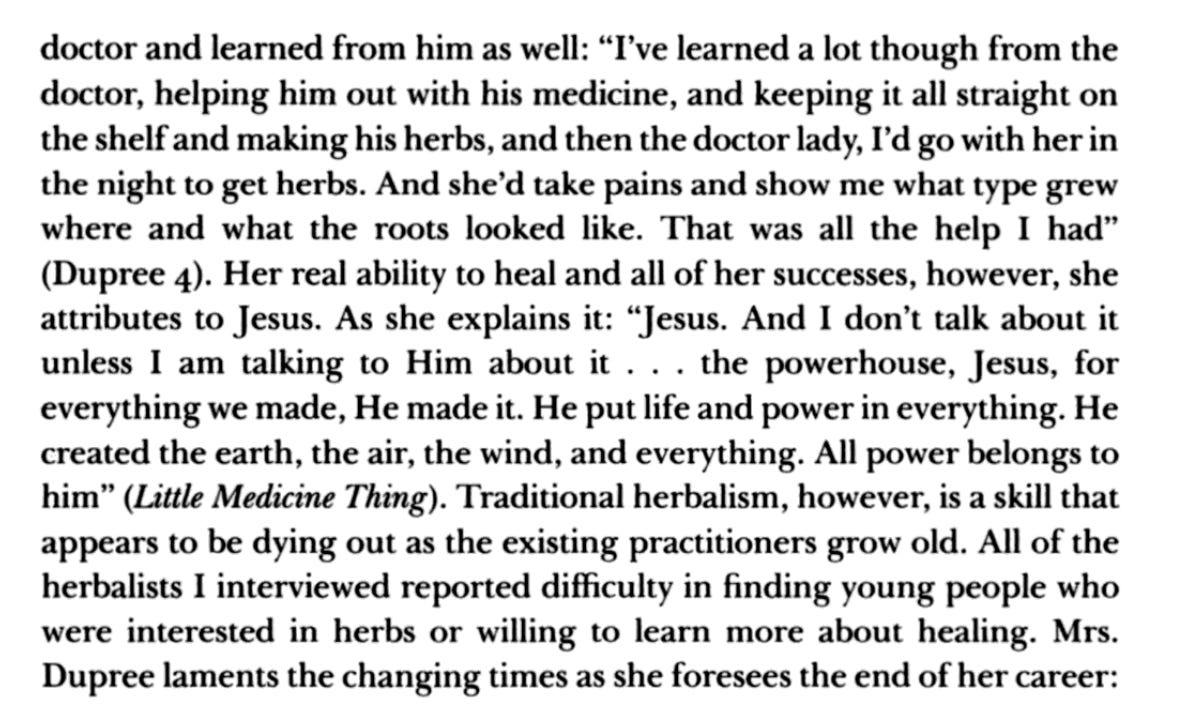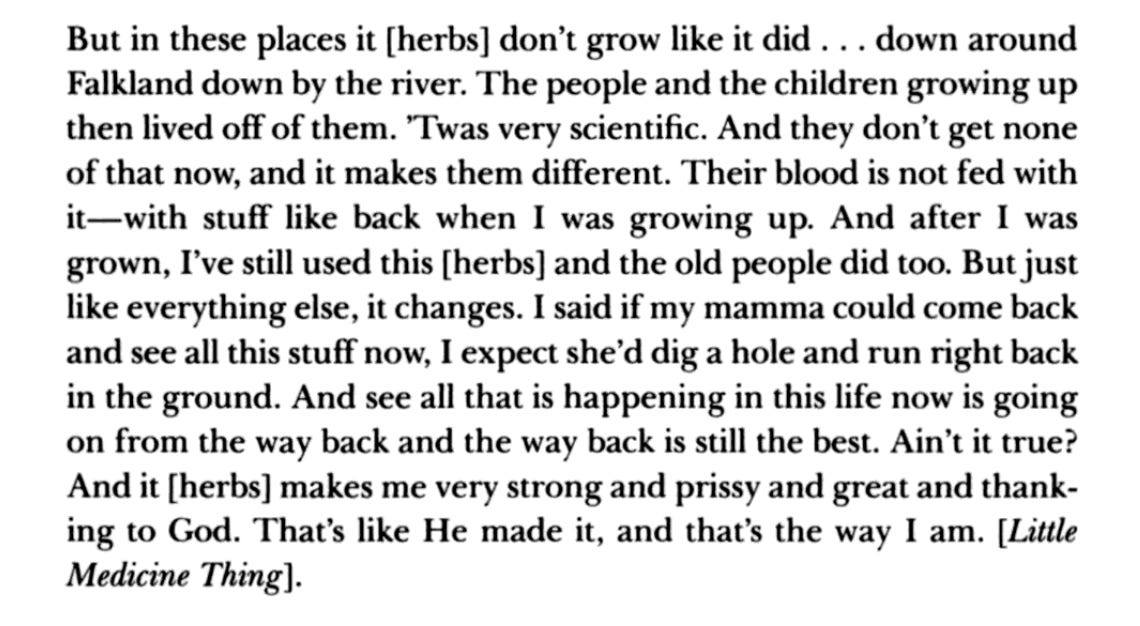How Emma Dupree Turned Her Backyard Into a Community Apothecary
The life and legacy of the esteemed North Carolina herbalist.
Oversized round sunglasses adorn her face, a wooden crucifix hangs from her neck, and her yellow shirt dress dances in the wind as Emma Dupree walks the documentarian through her garden, sharing stories of her loved ones, community, and how her knowledge of herbalism helped heal them. This moment in Little Medicine Thing: Emma Dupree, Herbalist, alongside her seasoned North Carolina accent, provokes memories of my own great-grandmother, walking me through her flower garden, explaining each life vessel to me and how to take care of them. Many of us will likely see our own elders in Miss Dupree, a celebrated figure within the rich history of Black herbalism, who was affectionately known as "Aunt Emma" and "Little Medicine Thing."
Born on July 4, 1897, in Falkland, North Carolina, Dupree’s life was rooted in her connection to nature and using what the earth provides to heal ailments. Dupree developed an intimate understanding of medicinal plants at a young age. She spent her childhood exploring the dense forests near her home and absorbing the wisdom offered by her surroundings, often carrying a gathering sack with her during her adventures. Her innate curiosity and intuitive relationship with plants quickly grew into a passion and skill set that would later serve her entire community. Dupree’s home in Fountain, North Carolina, where she lived as an adult, eventually blossomed into a living pharmacy where she meticulously cultivated herbs such as sassafras, rabbit tobacco, maypop, mullein, white mint, double tansy, catnip, horseradish, silkweed, and many other healing herbs. She would go on to work with physicians in her community, bridging the gap between ancestral knowledge and Western medicine.
In 1984, the North Carolina Folklore Society awarded her the Brown-Hudson Award. In 1992, when she received the North Carolina Heritage Award, she solidified her legacy within the state’s cultural and historical narrative. In 2022, a historic marker was erected in her honor in Fountain. And, each year, the community celebrates "Emma Dupree Day.”
While researching this edition of You Should Know Her, I found some excellent pieces about Dupree. Instead of producing another bio, I thought it would be more powerful to share blocks of text that stood out to me and encourage you to read up more on Dupree yourself. (For those old journals, I went through the digital archives and found photos of the article for you.)
Resource Guide
Alex Albright. Emma Dupree: Fountain’s Herbalist & Healer.
Karen Baldwin (1984). Mrs. Emma Dupree: “That Little Medicine Thing.” North Carolina Folklore Journal, 32(2), 50–53.
Bill Sharpe (1997). Emma Dupree – Herbalist. North Carolina Folklore Journal, 44(1 & 2), 56–58.
I pulled this paragraph out because I found it fascinating:
According to folklorist Karen Baldwin of East Carolina University, what Mrs. Dupree was born to was “a tradition of knowing about the curative and preventative uses of the natural pharmacopeia which grew along the banks of the creeks and branches and the Tar River.” As a young child she developed an unquenchable fascination with plants and their medicinal properties. She spent endless hours roaming the woods gathering leaves, bark, stems, and seeds which she collected in a sack. “The woods-gal, that’s what they called me. They’d say, here comes that little medicine thing.”
Karen Baldwin (1990). Folk Arts and Folklife in and around Pitt County: A Handbook and Resource Guide.
James K. Kirkland, Holly F. Matthews, Charles W. Sullivan III, and Karen Baldwin (1992). Herbal and Magical Medicine: Traditional Healing Today.
East Carolina University (1979). Little Medicine Thing: Emma Dupree, Herbalist. Oral History.
Alex Albright (2020). “Emma Dupree, Pitt County Herbalist.” Lecture.
Safiyyah Bazemore (2021). Black Herbalist Spotlight: Emma Dupree.
Angie Lavezzo. Emma Dupree, Folk Herbalist & Granny Woman.








